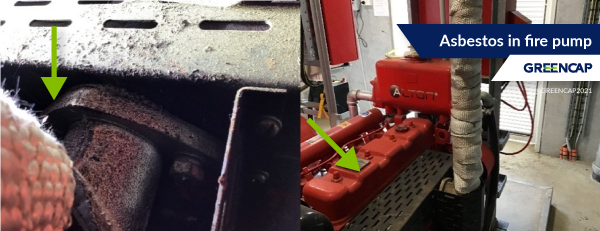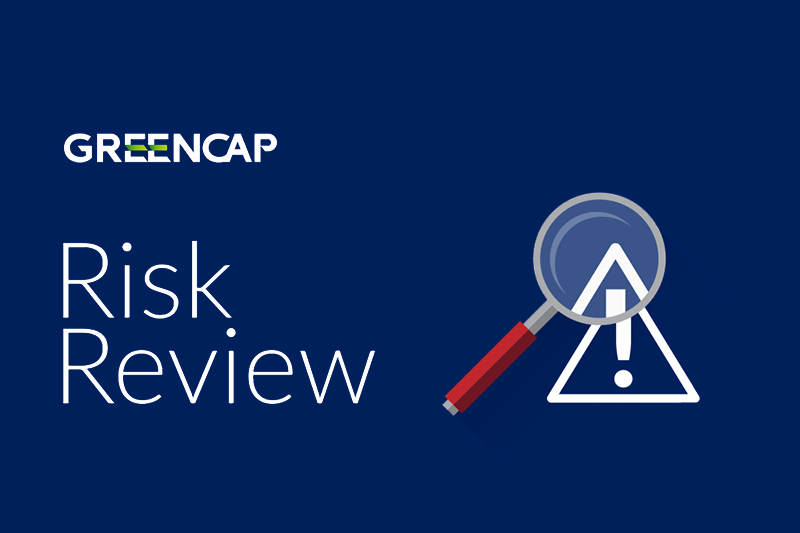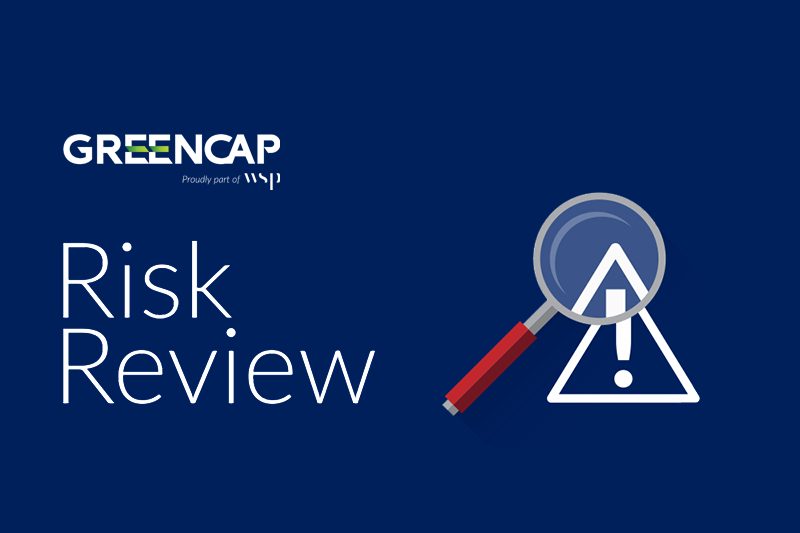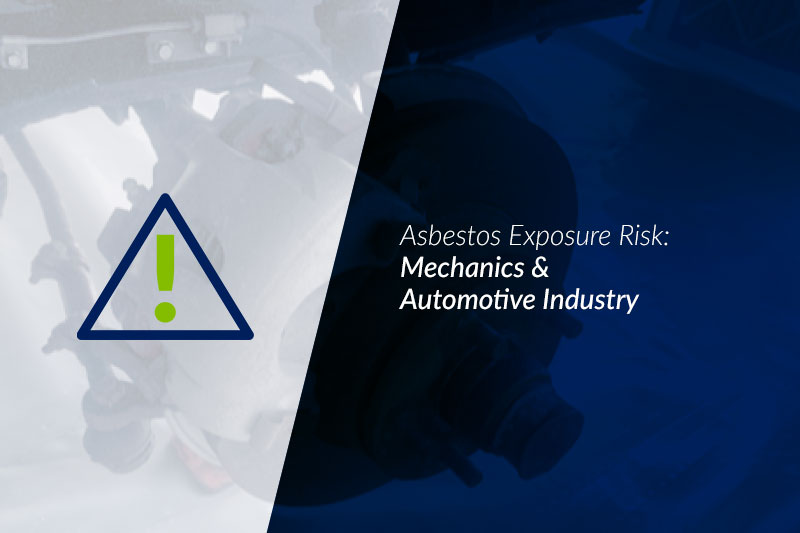News & Insights
Caution in Construction: Imported Asbestos & Prohibited Goods
Asbestos has been completely banned in Australia since December 2003. Workers in buildings constructed after this time should not expect to find this toxic material. However, it is still being uncovered, and is unfortunately far from being completely eliminated. Practising caution and arranging a professional analysis as soon as possible on construction sites is highly recommended if asbestos is suspected in any shape or form.
Click here to download the National Asbestos Forum Q&A Booklet (PDF)
Australia is one of the only countries in the Asia-Pacific that has a full ban on all types of asbestos. Imported building materials, such as pre-fabricated house kits, cut stone, tiles, any heat resistant or flame-resistant structural goods, cement fireboards and panels may be at higher risk of containing asbestos, according to the Australian Border Force (ABF).

Asbestos in a sink pad liner. Photo by Malcolm Fabiny, © Greencap2021
Is this still a problem in 2021?
Asbestos and Asbestos Containing Materials (ACM) continue to be uncovered frequently in many buildings and building materials constructed after 2004. Recently, bituminous asbestos was discovered in a sink pad liner that was constructed around 2013.
The Australian Border Force (ABF) has been focusing on eliminating imported asbestos in building materials from Australia and is also urging project managers to have regular dialogue with overseas importers in their processes around hazardous asbestos.
Bringing asbestos into Australia may be done unintentionally, and Australian importers of building materials or any other household items should be aware of their country of origin’s practices regarding this.
The Australian Government has a guide for importers and exporters as part of the Asbestos Safety & Eradication Agency.
Other recent examples of asbestos found in imported goods was in a child's remote control car, purchased in 2020, and in a manifold gasket to a fire pump that was installed in 2014. These particular circumstances for finding asbestos are common and seen frequently.

Asbestos in the clutch/slip plate of a child's toy car. Photo by Ross Connell, © Greencap 2021.

Asbestos in a fire pump. Photo © Greencap 2021.
The Australian Border Force (ABF) has also had recent detections in motor vehicles and scooters, mineral stones, slabs, and more.
As the above examples highlight, the continued widespread use in other jurisdictions makes it difficult to regulate asbestos in imported goods, no matter the product category.
Examples of imported asbestos containing products
Common examples from imports include:
Building products
- Expanded polystyrene sandwich panels - imported from China
- Cement fibre boards - imported from China
- Mineral slabs (marble) - imported from India
Old car parts - vehicle parts designed to withstand heat
- Brakes - imported from USA
- Clutch - imported from USA
- Linings to boot, floor and seals - imported from USA
- Window seals - imported from USA
New electric bikes & scooters
- Brakes and calliper pads - imported from South Africa, Vietnam and China
"If you don't look, you won't know, and you may never know," says Malcolm Fabiny, Greencap Licenced Asbestos Assessor.
"Asbestos is still being uncovered in the most unlikely of places, and construction workers at all levels need to stay vigilant," he added.
![]()
Join the Greencap Mailing List to be the first to receive industry news, announcements, event invitations and offers.
What to do if you suspect an item may contain asbestos?
High-risk imported items that may contain asbestos should always be tested.
Before imported building products arrive on site, they should be sampled to verify that they do not contain asbestos, and it should be done before it leaves the country of origin. This means focuses on the total supply chain.
Even if your state or territory’s regulations say that an asbestos register is not required, or no asbestos has been identified and no asbestos is likely to be present, it is important to stay aware of the risks.
Any product or mineral that contains actinolite, amosite, anthophyllite, chrysotile, amosite, or crocidolite is considered as asbestos. It should be noted that sometimes you may get a sample analysis report that states Mineral Fibre of Unknown Type (MFUT) which should be treated as containing asbestos until further testing is undertaken. MFUTs are fibres observed by the laboratory exhibiting most optical characteristics of asbestos fibres, but which fail the test for dispersion staining (DS). Further testing is required such as X-Ray Diffraction (XRD) analysis.
The health effects of asbestos are well-known, and include asbestosis, mesothelioma, and multiple cancers, such as lung, larynx and ovarian cancer. Asbestos importation also carries significant penalties which can result in large fines and jail time for the individual or business involved so it is best not to take any undue risks.
![]()
Learn in depth about asbestos labelling and signage requirements and more in Greencap's Online Asbestos Awareness Training course
Click here to download the Asbestos Importation Checklist (PDF)
How Greencap Can Assist
Greencap has offices in all mainland states and territories of Australia and has been specialising in the area of asbestos for over 35 years.
![]()
Asbestos Management Plans
Greencap partners with building owners and managers to provide tailored, practical, cost-effective solutions like Asbestos Management Plans to provide security for assets and people.
To ensure that clients receive technical excellence and long-term value, Greencap operates under rigorous internal and externally accredited quality manual systems and technical procedures including ISO17020 (Inspection), ISO17025 (Laboratory Analysis) and ISO9001 (Quality).
![]()
Muddy Boots Asbestos Training
Greencap’s Muddy Boots Asbestos Training provides industry-leading asbestos training* that is customised to meet client requirements, policies and procedures. Courses can be delivered at Greencap training facilities or at your workplace, and include:
- Asbestos Awareness
- Asbestos Management Responsibilities
- Asbestos Management Plans
- Asbestos Handling (design for people working with less than 10 m2 of asbestos)
- Silica Awareness
*Non-Accredited
![]()
NATA Accredited Laboratories
To provide asbestos identification and fibre counting services, Greencap has NATA-accredited laboratories in Sydney, Wollongong, Darwin, Melbourne and Adelaide, with an XRD machine in the Adelaide laboratory for mineral identification and specialised testing around vinyl floor tiles and silica/quartz.
Greencap has an exemption to import samples into Australia for the purpose of testing and analysis, enabling samples to be tested before the materials are shipped to Australia. Advice and sampling is available for builders, importers, architects, customs agents and clients prior to the materials being exported.
Additional Asbestos & Hazardous Materials Services
- Asbestos in soils
- Asbestos audits
- Asbestos compliance risk assessments
- Demolition and refurbishment risk assessments
- Clearance inspections and reporting
- Asbestos fibre air monitoring
- Preparation of asbestos removal specifications
- Project management and tendering services
- Due diligence assessment and reports
- A range of innovative and cost effective risk and contractor management tools
- Competent and Licensed Asbestos Assessors across Australia
For more information about how asbestos could impact your workplace or facility, and how Greencap can help deliver value to your business:
Contact Greencap’s asbestos & hazardous materials risk management experts
The information in this material is not intended to provide, and should not be relied upon, for legal or professional advice and is subject to change. This material provides general information only and does not take into account your particular circumstances. Before making any decisions, you should assess whether this material is appropriate for you and obtain legal advice tailored to you having regard to your particular needs and circumstances. Greencap Pty Ltd (Greencap), its officers, employees and agents believe that the information in this material and the sources on which the information is based (which may be sourced from third parties) are correct as at the date of publication. While every care has been taken in the preparation of this material, no warranty is given for its reliability or accuracy and no responsibility is accepted by Greencap, its officers, employees or agents. If this material contains links to third party websites, Greencap does not control and is not responsible for the information contained within these websites. None of these links imply Greencap’s support, endorsement or recommendation of any other company, product or service.



Greencap acknowledges the Traditional Owners of Country throughout Australia and recognises their continuing connection to land, waters and culture. We pay our respects to their Elders past, present and emerging.



